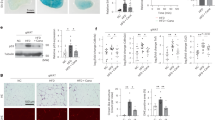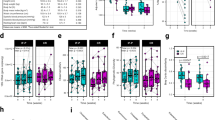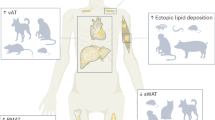Abstract
IT has long been felt by several workers that adiposity is connected with the onset of diabetes mellitus. It has previously been reported by us1 that the intermediary fat metabolites such as ß-hydroxy butyric acid, aceto-acetic acid and pyruvic acid, when injected into normal rabbits in the form of their sodium salts, give rise to the condition of hyperglycæmia characterized by decreased sugar tolerance in those animals. It has also been observed by us2 that these substances can reduce the potency of external insulin while allowed to combine with them both in vitro as well as in vivo.
This is a preview of subscription content, access via your institution
Access options
Subscribe to this journal
Receive 51 print issues and online access
$199.00 per year
only $3.90 per issue
Buy this article
- Purchase on Springer Link
- Instant access to full article PDF
Prices may be subject to local taxes which are calculated during checkout
Similar content being viewed by others
Author information
Authors and Affiliations
Rights and permissions
About this article
Cite this article
NATH, M., BRAHMACHARI, H. Relation of Intermediary Metabolites to the Lowering of the Potency of Pancreatic Insulin in the Animal System. Nature 161, 18–19 (1948). https://doi.org/10.1038/161018c0
Issue Date:
DOI: https://doi.org/10.1038/161018c0
This article is cited by
-
Effect of ?-Hydroxybutyrate Injections on the Pancreatic Activity of Guinea Pigs and Rats
Nature (1960)
-
Effect of β-Hydroxybutyrate Injections on the Pancreatic Activity of Guinea Pigs
Nature (1959)
-
Species Difference in the Biosynthesis of Vitamin C and Response to Diabetogenic Substances
Nature (1948)
Comments
By submitting a comment you agree to abide by our Terms and Community Guidelines. If you find something abusive or that does not comply with our terms or guidelines please flag it as inappropriate.



